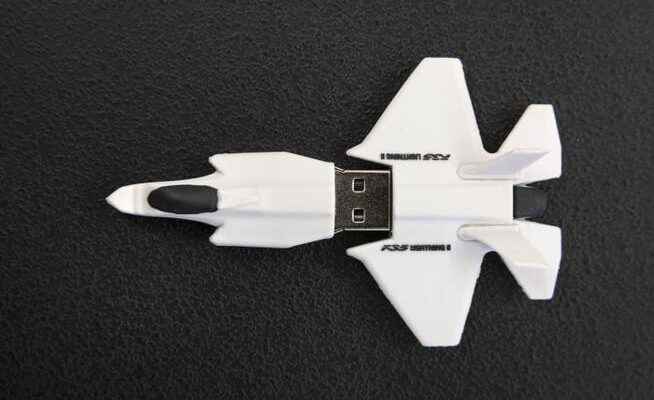Foreign policy aspects should be better taken into account in the next comparable arms deal.
A USB stick in the shape of a Lockheed Martin F-35 fighter jet.
On Friday afternoon, the National Council’s Audit Committee (GPK-N) published its report on the evaluation process for the new F-35 fighter plane. The long-awaited paper contains neither a scandal nor a major inconsistency. The GPK gave birth to a mouse.
She comes to the conclusion that the technical evaluation was “legally correct”. The GPK also describes the new assessment methodology, which – like so much in this business – has caused media criticism. Armasuisse, the responsible Federal Office for Armaments, also ensured that the four providers were treated equally and went through an “objectified, comprehensible” procedure. As is well known, there were four types to choose from: the F-35 and the Super Hornet from the USA, the French Rafale and the European joint product Eurofighter.
From the GPK’s point of view, everything went right in the technical area, but she sees potential for improvement on the political level of the procurement process. The Commission considers it “questionable” that the Federal Council did not discuss any foreign policy aspects at the beginning of the procedure. In this way, the scope for action was unnecessarily restricted.
The criticism of the GPK relates above all to the confusing situation in spring 2021. The finance, foreign and economic departments negotiated with France about counter transactions in the taxation of cross-border commuters and in European policy. The talks are said to have continued even after it was already clear that the French plane Rafale was clearly inferior in the evaluation. This led to foreign policy upsets. But even within the Federal Council, the house blessing was lopsided.
For this reason, the GPK recommends that the government, in the case of large armaments deals, check at an early stage “the extent to which foreign policy aspects should be included in these” and accordingly clearly regulate the responsibilities for negotiations with other states.
More to come.
